In 1992, when early tallies pointed to a likely Fru Ndi victory, the regime of Paul Biya, supported quietly by French diplomatic networks and British disinterest, swiftly moved to seize control. France provided the logistical shield for electoral manipulation, while Britain openly declared it had “no interest” in the Southern Cameroons question.
By The Independentist Editorial Desk
Standfirst:
In 1992, Paul Biya stole Cameroon’s first multiparty election with quiet French and British backing. Three decades later, similar tactics are resurfacing — but Ambazonia has learned from history. As Tchiroma stands at a historic crossroads, the path ahead may determine whether this election is just another farce or the start of genuine disruption.
1992: The Stolen Mandate
The presidential election of 1992 marked a pivotal moment in La République du Cameroun. Ni John Fru Ndi and the Social Democratic Front (SDF) captured the imagination of millions, particularly in Southern Cameroons, who hoped for a democratic breakthrough after decades of one-party rule.
When early tallies pointed to a likely Fru Ndi victory, the regime of Paul Biya, supported quietly by French diplomatic networks and British disinterest, swiftly moved to seize control. France provided the logistical shield for electoral manipulation, while Britain openly declared it had “no interest” in the Southern Cameroons question.
Three years later, in 1995, Britain went beyond silence — it rolled out the red carpet for La République du Cameroun to join the Commonwealth, legitimizing the very regime that had stolen the election. This inaugurated a new phase of Franco-British complicity, lubricated by banana exports, oil concessions, and the exploitation of Ambazonian timber under the language of “shared values.”
Fru Ndi and the Intelligence Trap
Shortly after 1992, Fru Ndi was invited to France under the pretext of dialogue. At the same time, rumours widely believed to have been cultivated by French intelligence circles began circulating that his “real name” was Fouda Ndi — an attempt to recast him as a Francophone insider from the South Province.
Not long after, the SDF headquarters relocated to Yaoundé, bringing the opposition into the capital’s orbit where it could be monitored and influenced. What began as a grassroots democratic surge was strategically absorbed into the structures of control.
The Joshua Osih Substitution: Engineering the “Perfect” Candidate
As Fru Ndi’s influence waned, the SDF leadership shifted to Joshua Osih, a previously little-known figure from what propagandists called the “11th Province.” Osih’s background was viewed in many political and diplomatic circles as advantageous to the Francophone establishment: born to a French-Swiss mother and a father descended from settlers from the South Region, with ancestral ties to the South Province itself.
This profile allowed him to straddle Francophone and Anglophone identities, presenting a cosmopolitan face that could appeal internationally while remaining culturally and politically aligned with Yaoundé’s power base. Observers at the time noted how this made Osih a palatable substitute for genuine Ambazonian political voices — a candidate who could project diversity without challenging the centralized system.
Ghost Towns and Elite Betrayal
In the wake of the stolen election, Ambazonians — then referred to as “Anglophones” — adopted a new weapon: ghost towns. Through waves of disciplined civil disobedience, towns across the territory fell silent. For a brief period, the regime faltered.
But economic elites from the Bulu and Bamileke communities began to complain as business interests suffered. One by one, potential allies peeled away. Biya, ever patient, exploited divisions, co-opted elites, and waited. Fru Ndi’s momentum evaporated. A potential democratic transition dissolved into three more decades of authoritarian continuity.
2017: War Declared, Spirit Awakened
In 2017, when Biya declared war on Ambazonia, he expected quick victory. Instead, he encountered a transformed people. For seven years, Ambazonians held to weekly ghost towns with remarkable discipline. Despite military operations, the colonial economy faltered. The resistance was no longer a political party; it was a people’s movement.
2025: Tchiroma’s 1992 Moment
Today, Issa Tchiroma Bakary finds himself at a decisive historical juncture. Like Fru Ndi in 1992, he stands against a deeply entrenched system backed by foreign powers and internal elite networks. Unlike Fru Ndi, however, he stands at a time when Ambazonians have refined a nonviolent weapon that the regime has never been able to neutralize: the ghost town strategy.
If Tchiroma fails to mobilize his base and the broader population into coordinated, disciplined shutdowns, he risks becoming another footnote — a charismatic challenger outmaneuvered by a regime that thrives on elite buyoffs and time.
Rumours of Payoffs
Political corridors are buzzing with unverified but persistent rumours that Joshua Osih, Bouba Bello Maigari, and two other presidential contenders have accepted financial inducements to concede Paul Biya’s “victory” even before the Constitutional Council’s official proclamation.
While these claims remain unproven, they mirror the regime’s long-standing tactics since 1992: elite buyoffs, staged national unity, and manufactured consensus. The coming weeks will reveal whether these rumours reflect reality or serve as political smoke. Either way, they fit a historical pattern too consistent to ignore.
Divine Timing
As Ambazonians followed President Dr. Samuel Ikome Sako’s call for total shutdown during this electoral period, heavy downpours swept across Ambazonian towns. Nature itself seemed to join the resistance, ensuring no credible claim of voting could be made. It was a symbolic reminder: some forces remain beyond manipulation.
Editorial Conclusion: A Strategic Crossroads
From 1992 to 2025, the story is one of foreign betrayal, engineered substitution, and evolving resistance. Britain and France enabled fraud. Fru Ndi was strategically neutralized. Osih was elevated as a substitute figure. Elite buyoffs remain a constant feature of Yaoundé’s playbook.
But Ambazonia has changed. The ghost town has proven more powerful than any ballot rigging. It is the only strategy the regime has failed to crush in seven years of war.
A Word to Tchiroma
If Tchiroma truly seeks to break the cycle, he must transcend the conventional political script. Rallies and speeches will not suffice. He must leverage his political capital to align with Ambazonia’s proven strategy of disciplined, territory-wide ghost towns.
Only by paralyzing the system can he escape the fate of Fru Ndi — and avoid being absorbed by the same machinery he seeks to challenge. History has given him a window. Whether he uses it or becomes its next casualty depends on the choices he makes now.
The Independentist
Investigative Editorial Series — October 2025













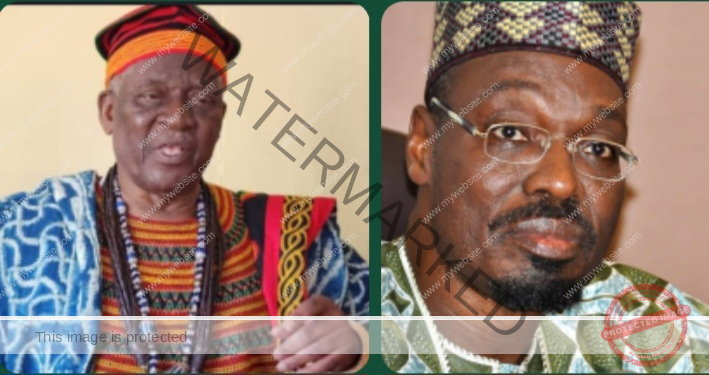
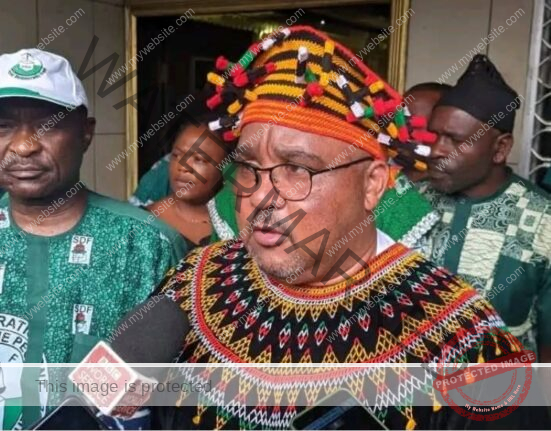
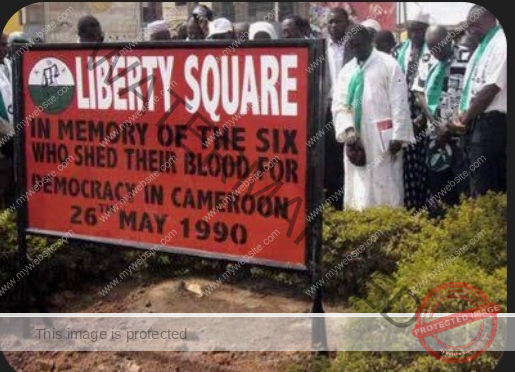


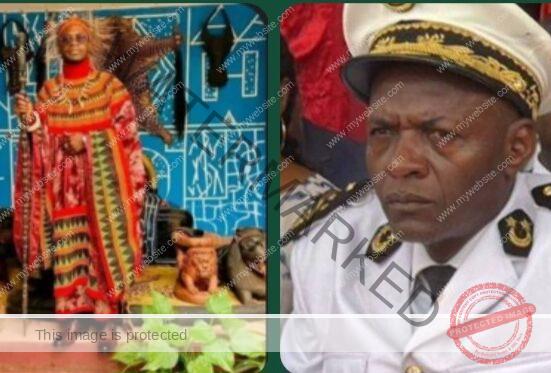
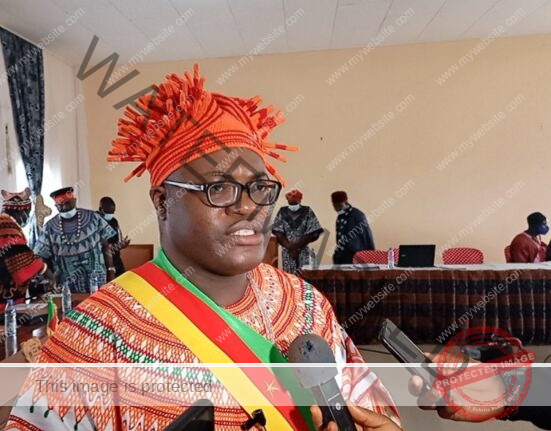

Leave feedback about this